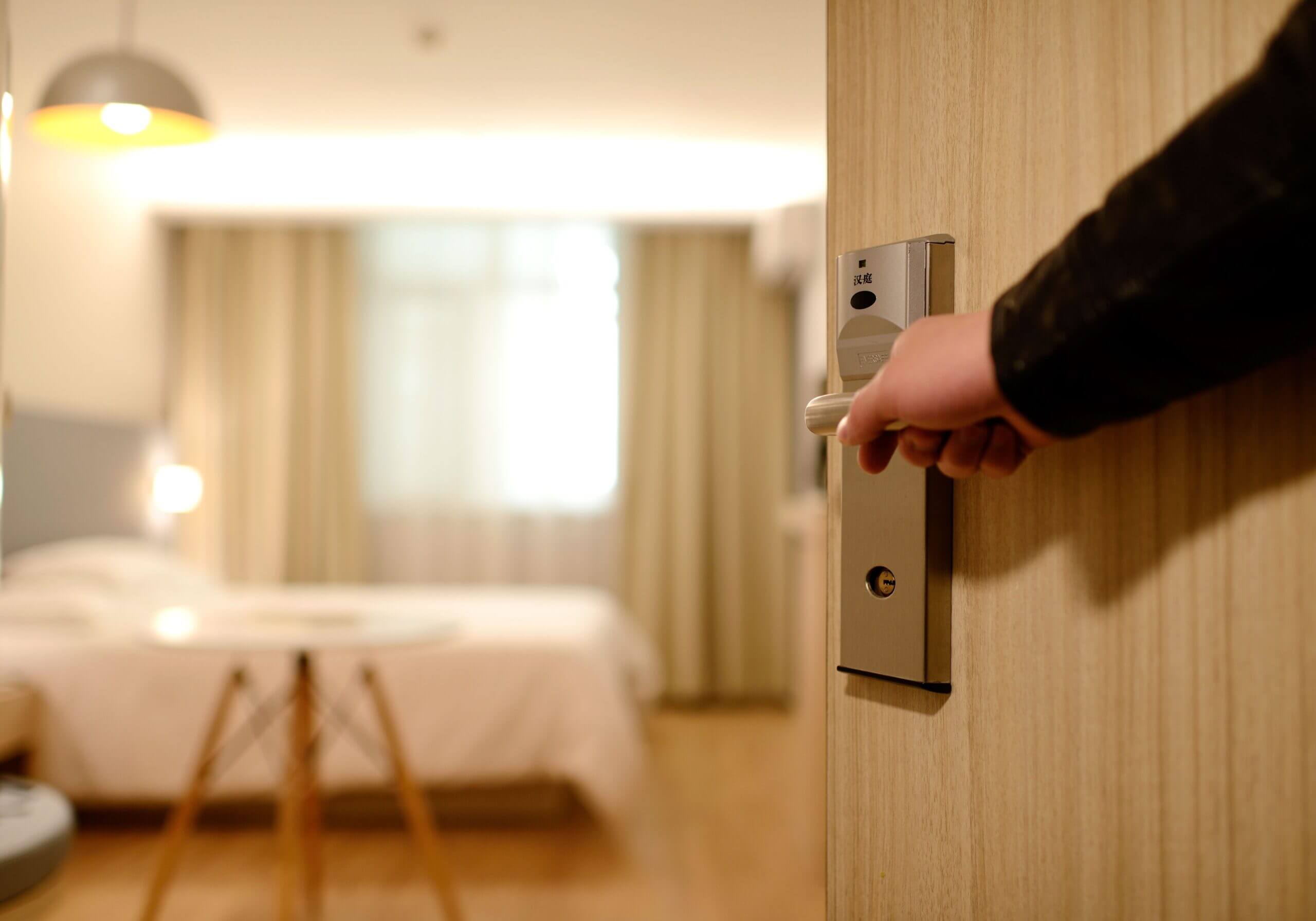
by Jana Johnson | Nov 30, 2022 | Sales
Every hotel is interested in learning the same information about their guests: how they came to book your hotel, how long they are staying, are they traveling for leisure or business, and if business travel, how many other company employees are part of the same group.
In a perfect world, you would know all the details about your guests checking in.
Knowing this information can help personalize the hotel stay for your guest and in turn, help generate repeat business.
Some of the tracking mechanisms you have in place at your hotel may even be providing you with some of the key data. Successful collection of guest data depends on implementing a few standards across your hotel team. It’s important to put these standards in place to ensure you are capitalizing on your hotel’s success.
Gathering Client Information During Booking
So many components of a hotel are important but keeping your team consistent with the data it collects, is number one. Utilizing a checklist can help keep the team on track and ensure that you capture the most important details such as:
- Company name
- Company profile – is there a contact name and email address?
- Rewards / loyalty programs – If there is a rewards number, look up their rewards number in the property management system to see if you can learn more information on the customer. You can also learn about guests’ travel habits and preferences
- Special requests
Review of the Arrivals List
Are you prospecting your arrivals list? If not, you could be missing the single most important thing that could help you drive business to your hotel. A quick review of the arrivals list every morning, can ensure you are not missing any key guest data. If data is missing, take it as an opportunity to ask the guest for more information. This will also affirm that you value their stay and want to perfect their stay.
Review How Your Reservations Are Coming In
Let’s start at the beginning by meeting directly with your reservations team. Some of your tracking mechanisms in place may be successful in giving you intelligent data but the team that takes the calls should be your number one resource. How are the reservations coming in? Are they going through Online Travel Agencies (OTAs) such as Expedia or Booking.com? Are they going through a local travel agency or a large Travel Management Company (TMC) or Consortia?
If so, you’ll want to jump in quickly to compete for guest loyalty by tailoring your future marketing using guest data to encourage them to book directly through the website instead of going through a middleman.
Go Straight to the Booking Source
If your guests are booking through a third party, such as a travel agency, contact that source to learn more information. Call and speak to the source and introduce yourself and thank them for the business. Explain you want to know who their contact is at the company so that you may find out more about their travel patterns.
Track Data and Plan
Guest data is critical in understanding travel patterns, but it won’t be very useful without a way to refer to it. Plugging the data into a Customer Relationship Management (CRM) database or an Excel database for easy reference will help you organize and sort the information so that it’s useful. Using this information will not only help you learn about the guests that stay at your hotel, but also how you can customize personal marketing messages that will speak their language.
Get Your Hotel in the Running for RFP Season
If you notice a significant number of room night bookings from one company, then you could be a preferred hotel on their list. Over 100 rooms in a year should also get you a seat at the RFP table that happens annually with the corporate travel team.
Data collection is one of the crucial tasks of a hotel. Gathering guest information and using it wisely can help you understand where your leads are coming from and how to best approach and go after new business. Track this information and consistently review it for booking patterns to help you take your bookings to a new level.
GRANT Hospitality offers a customized sales plan to help hotels reach their full sales potential. If you’re ready to learn how we can help you reach your goals, contact our team for a free consultation.

by Jana Johnson | Oct 27, 2022 | Sales, Travel
You work hard to promote your hotel and more than likely you spend a lot of time and money on advertising each year. Advertising your hotel is a big part of the business, but so are referrals.
Managing your referrals is a great way to gain new business and is also a great reason to communicate with the clients that provided the referrals.
Take advantage of the times when things go really well for a meeting or group stay. Your clients receive great value from the services your hotel provides, and you want other people to know about it. Read on to learn the five ways to fuel your business growth with referrals.
- Capitalize on the good experiences. Send follow-up email after group stays or meetings. Check in to see how their stay was. Did they have a mind-blowing experience? Did they enjoy the breakfast or the bath amenities provided? Thank them for their business and ask if there is anything you can do to improve. Not only does that make them feel special, but it’s also a great tool for gathering information and building your relationship and client database.
- Review Social Media. People love to talk these days about all of their experiences—both the good and the bad—and, they love to share it with the world via social media. Make sure your hotel is tapped into the social media apps for business such as Twitter, Facebook, LinkedIn, Instagram, Pinterest, and Yelp. This is a great way to see what people are saying and for staying stay in touch with your customers on another level.
- Right the wrongs. Unfortunately, things happen and sometimes customers may have an unfavorable experience. Whether it’s a situation that is beyond your control or something you can make better, apologizing, offering a complementary or discounted stay, can turn a negative experience into something positive and keep your clients’ business.
- Face-to-face communication with your customers. Take advantage of the face-to-face contact with a customer. Plan to be available upon arrival to thank them for their stay. Find out estimated time for departure and find out for yourself how they enjoyed their stay. And if a face-to-face won’t work, deliver them cookies, or a coffee card to a favorite café in town along with a personal note.
- Thank them for their feedback and referrals. When a referral comes through, find out the source and give credit where credit is due. A simple gesture like a handwritten note, or quick email of appreciation acknowledging the referral will keep the referrals coming in time and time again.
Those are just a few ways to make your clients’ experiences more memorable and ensure the possibility for future bookings.
Do you have unique ways you’ve shown your clients that you appreciate their business? Reach out and share some of your own experiences with client referrals and gestures of appreciation.

by Jana Johnson | Aug 25, 2022 | Marketing, Sales, Travel
If you manage a hotel or are new to owning a property, it doesn’t take long to recognize that the hotel sales position is one of the most integral parts of a hotel’s success.
The sales manager is responsible for generating room nights and increasing revenue during peak times plus building demand during the slow seasons.
This can be a challenge for even the most seasoned sales managers. The process takes a considerable amount of strategic planning, creativity, and forward-thinking to balance meeting sales goals while skillfully representing the hotel.
In this fluctuating environment, it is important to keep in mind that sales is a learned skill. An effective sales manager should be able to produce results despite hotel challenges and market conditions. This is accomplished by practicing a few habits for sales success.
Know Your Hotel and Your Competition
For sales efforts to be effective, you need to know the features, benefits, and weaknesses of your hotel as well as those of your competitors. For example, can you offer concessions like free breakfast, airport transportation, or a one-bedroom suite to give you that competitive edge? Superior sales managers understand the hotel at all levels and how to get creative and outshine the competition.
Be Open to New Technology
There are many ways to reach your end goal of driving occupancy. Successful sales managers try new strategies and the latest technology for reaching their target audience. Test drive new forms of social media to help reach your potential guests. Consider trying sales engagement platforms to help you create email templates and email blasts to reach multiple people at once. It’s also key to consistently review your strategies and question the best ways to spend your time.
Have Integrity and Authenticity
What separates the average hotel sales manager from a successful one? Integrity. Clients respond to genuine people with a core attitude of wanting to help, whether they get the sale or not. Be sure to always do what you say you will. You’ll want to develop a style of authenticity that builds trust, so your clients know you have done your best for them. It also assures them if any problems arise with the booking, you will be there to return their calls promptly.
Listen For Details
You may have heard the phrase, “Be interested, not interesting.” An enthusiastic attitude about your hotel is key, but before jumping in right away with all the features and benefits of your hotel, listen to what your clients’ needs are. Knowing how you can accommodate your clients’ needs will help you gain the edge over the competition. It’s important to ask probing questions and gather information to confirm if you are the right fit. You can never ask enough questions. This is vital in anticipating future needs—something all clients appreciate!
If you are looking to find wins in the competitive market of hotel sales, adopt these habits daily. Committing to a new behavior takes time and practice. Start by initiating one new strategy at a time and celebrate your small successes.

by Jana Johnson | Jun 9, 2022 | Sales
The success of your hotel depends on many factors including a unique guest experience, location, customer service, guest feedback, and a social media presence.
A successful hotel also understands the importance of sales efforts and dedicating time each day to capture your fair share of the market.
With today’s workforce challenges, hiring a dedicated salesperson may not be an option for many hotels. This often leaves putting your sales efforts to the front desk staff, or the general manager, who most likely doesn’t have the time or resources to be consistent or proactive with sales efforts.
This is where hiring a remote hotel sales service team can be a powerful resource and elevate sales presence in your market.
Increased Efficiency
Allowing an experienced sales team such as our team at Grant Hospitality to focus on prospecting, networking, building relationships, and gaining market share, decreases the administrative strain on your front desk staff, general managers, and team. The sales team works with existing customers, potential prospects, and key internal teams, like revenue managers. Working with revenue managers is extremely important for setting rates to meet the hotel’s strategic goals and maximize profitability. This allows your team more time to focus on customer service. It also provides hotel owners and operators peace of mind and the time to focus on operations and day-to-day activities.
A remote team can streamline sales processes while understanding the needs and issues of meeting planners, group business, the RFP process, and complex intricacies involving corporate accounts and travel.
Meeting regularly with your remote sales team helps a “green salesperson” or newly hired Director of Sales gain training and a better understanding of the big picture of hotel sales. Utilizing regularly scheduled sales meetings with hotel management staff, reviewing long-term strategies as well as guiding the hotel on how to make the most of their backyard potential can be key in training and strengthening existing staff’s knowledge and skills in selling your hotel.
Seasoned hotel sales professionals also add value by utilizing established key industry relationships and techniques for quickly finding and uncovering key decision makers and potential business in your area.
Cutting-edge Technology
Technology is key in keeping your hotel fully booked. Unfortunately, many hotels do not have the time and infrastructure in place to learn the latest hotel sales tools, train staff, and manage software updates. A remote sales team uses today’s current technology to connect with corporate and group business leads to take advantage of opportunities in the marketplace.
Remote teams have access to multiple channels such as Lanyon, Cvent, LeadGibbon, and Construction Journal, that help surface potential leads and contacts for those companies.
Lower Overhead
The most obvious benefit of a remote sales team is it can be an extension of your team without the overhead. Also, most hotel sales efforts can be done through outbound calls, online research, and email, which means sales meetings can also be held virtually.
Whether you are opening a new hotel, an independent boutique hotel, or managing a branded property with limited staff, sales efforts are important to the overall success of your hotel.
Don’t let leads slip away! Great salespeople will be your hotel ambassadors, community builders, marketers, and analysts always utilizing cutting-edge resources to land business for your hotel.
Utilizing a dedicated remote hotel sales team that possess the expertise and proven ability to get results, can ease the stress of filling your hotel and increase your bottom line.



